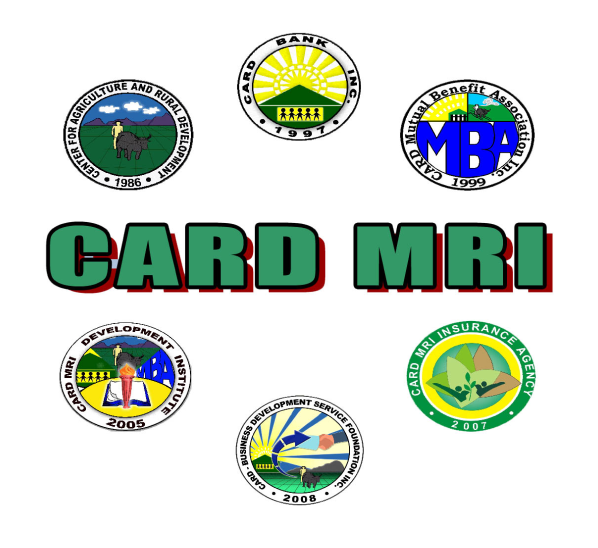CARD MRI started on December 10, 1986 with Php 20.00 and the \u201cmagic typewriter\u201d where Dr. Alip and his staff started typing proposals for funders.
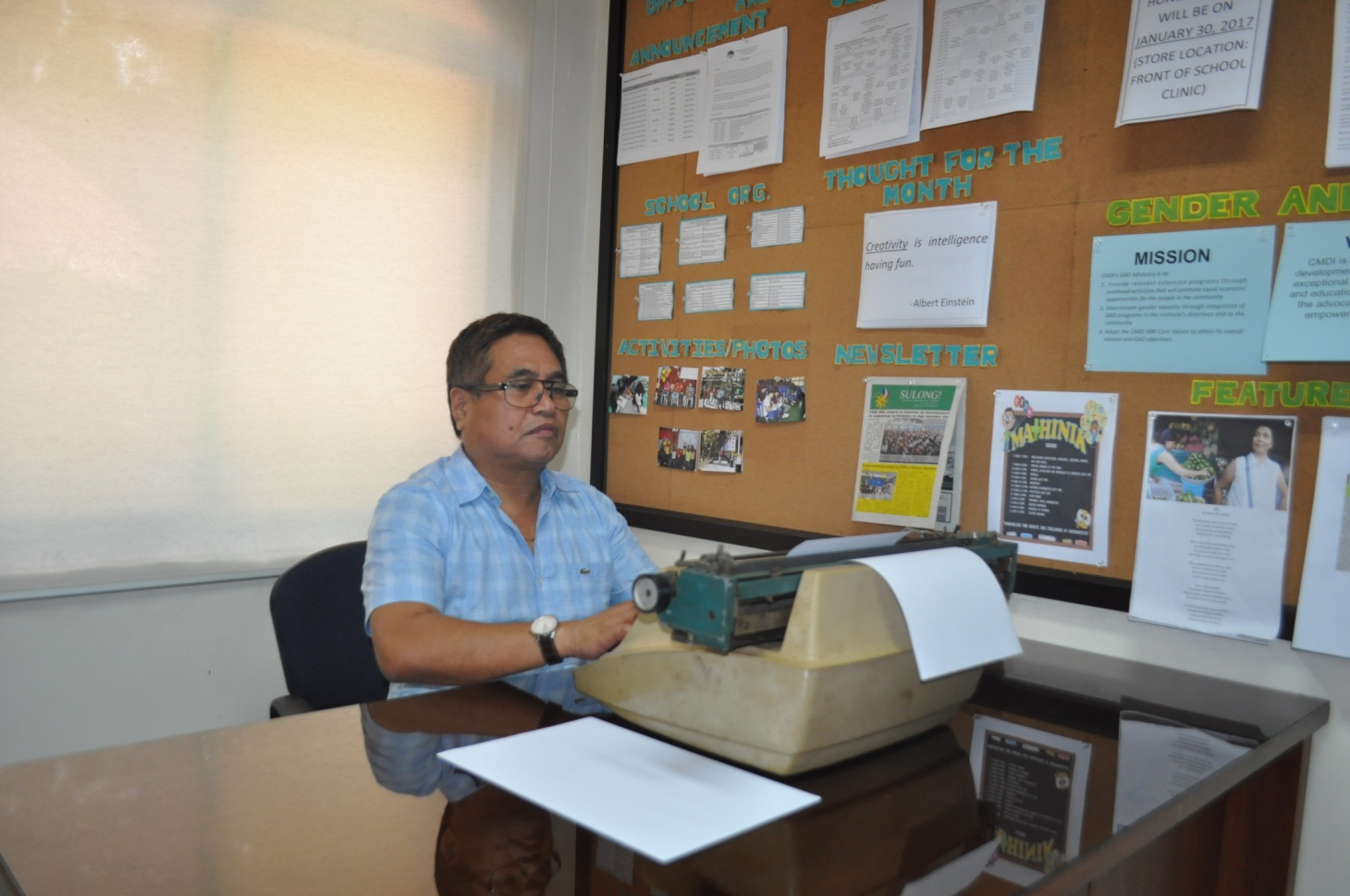
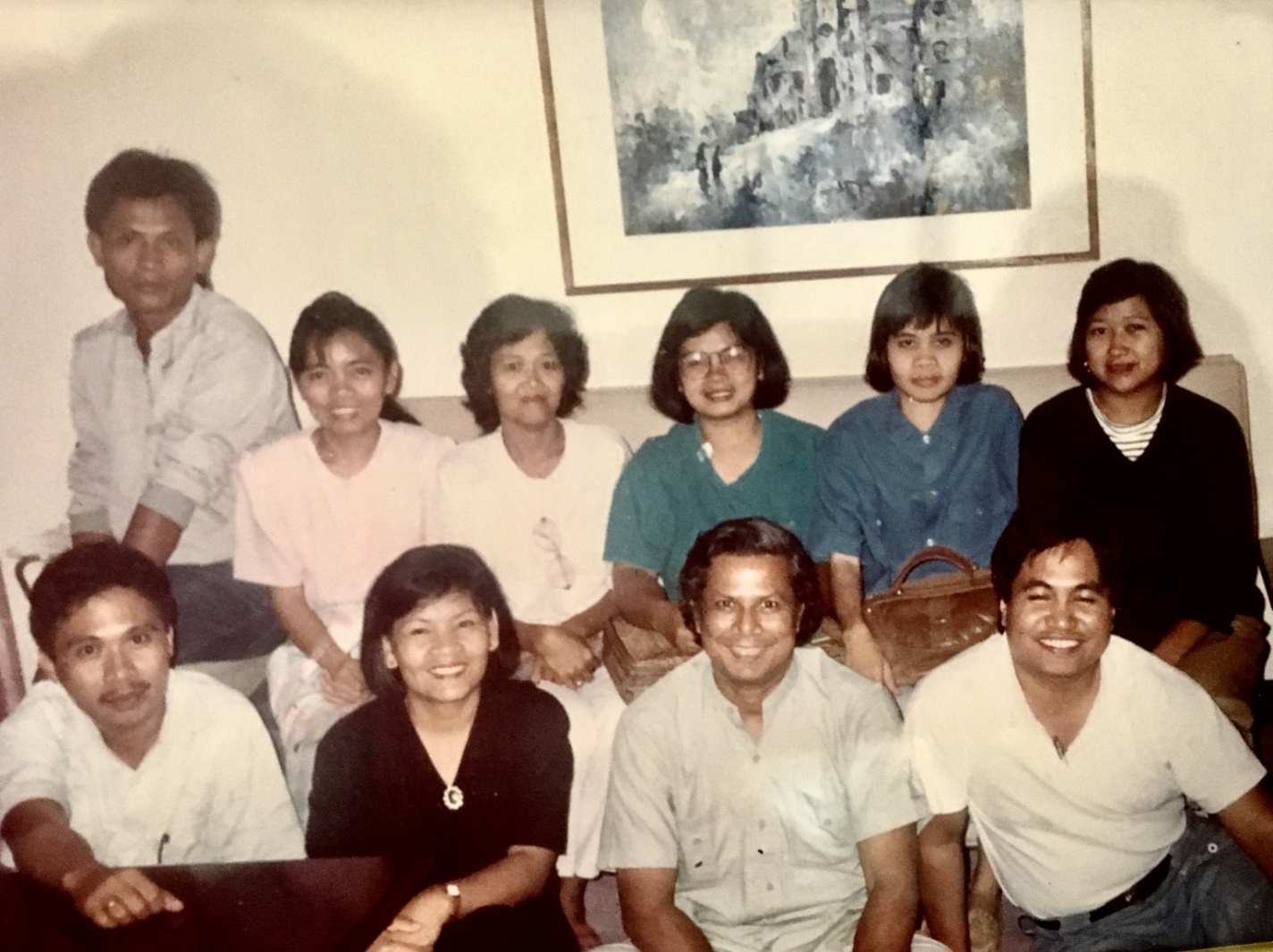
In 1990, the pioneer staff of CARD, Inc. met with 1984 Ramon Magsaysay Awardee Dr. Yunus to discuss the Grameen Bank Replication at CARD.
Dr. Alip believes that it is not enough to provide start-up capital to the poor \u2013 you must go where they are, observe how they live to understand their needs, talk to them to hear their aspirations. He comes back from every field visit with a new inspiration, a new idea on how to better serve the poor.
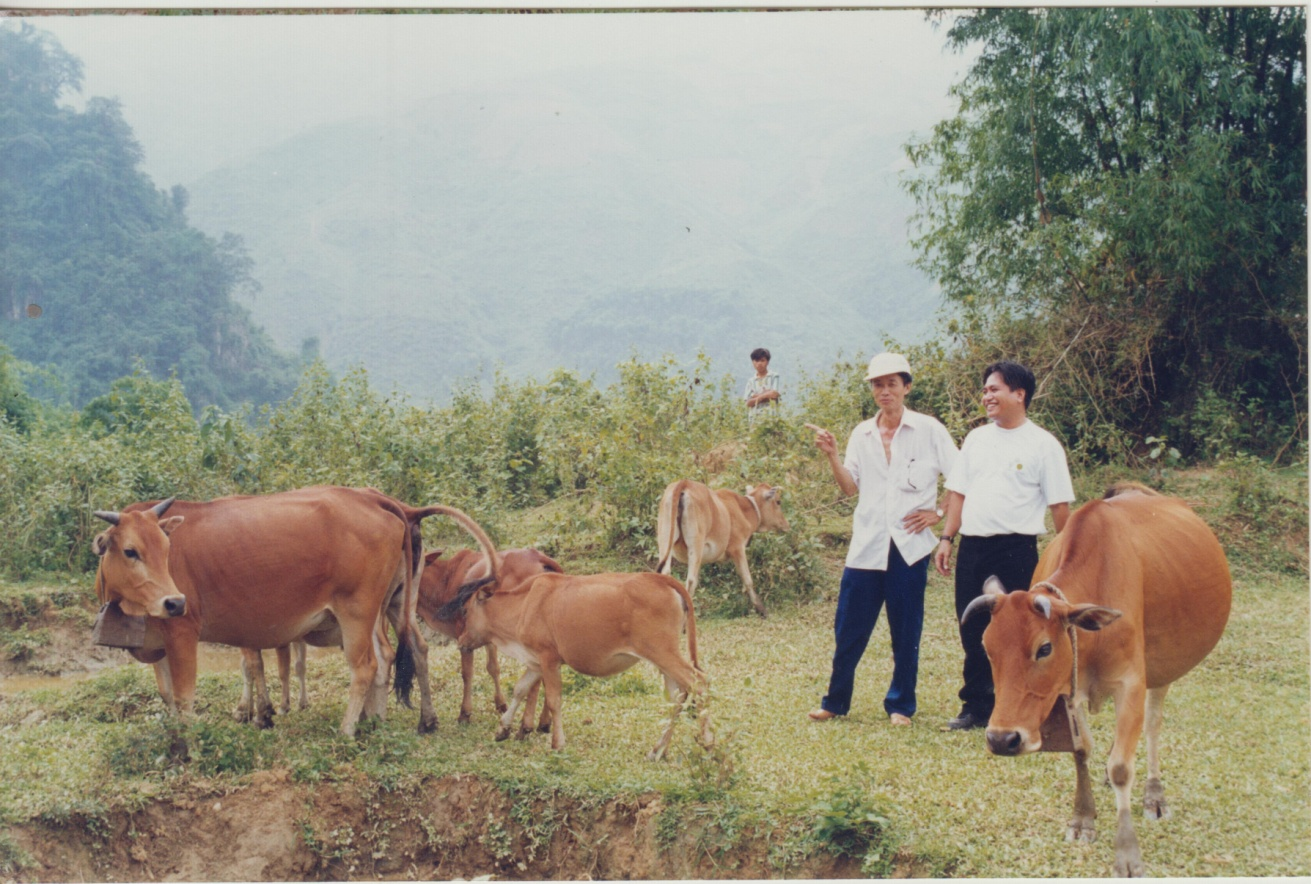
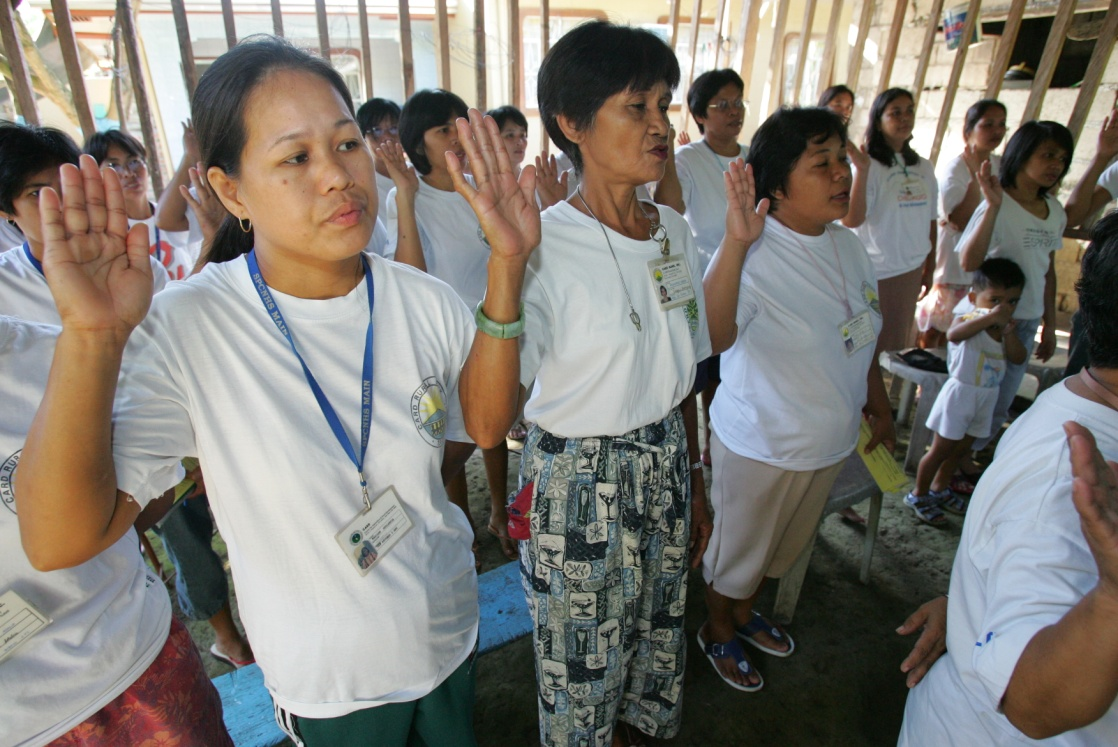
Mr. Alip formulated \u201c10 Decisions\u201d which evolved into a shorter Members\u2019 Pledge recited at the start of every weekly center meeting.
Built with their own resources, a typical center house becomes a venue for social interaction among peers and financial transactions between CARD and its members.
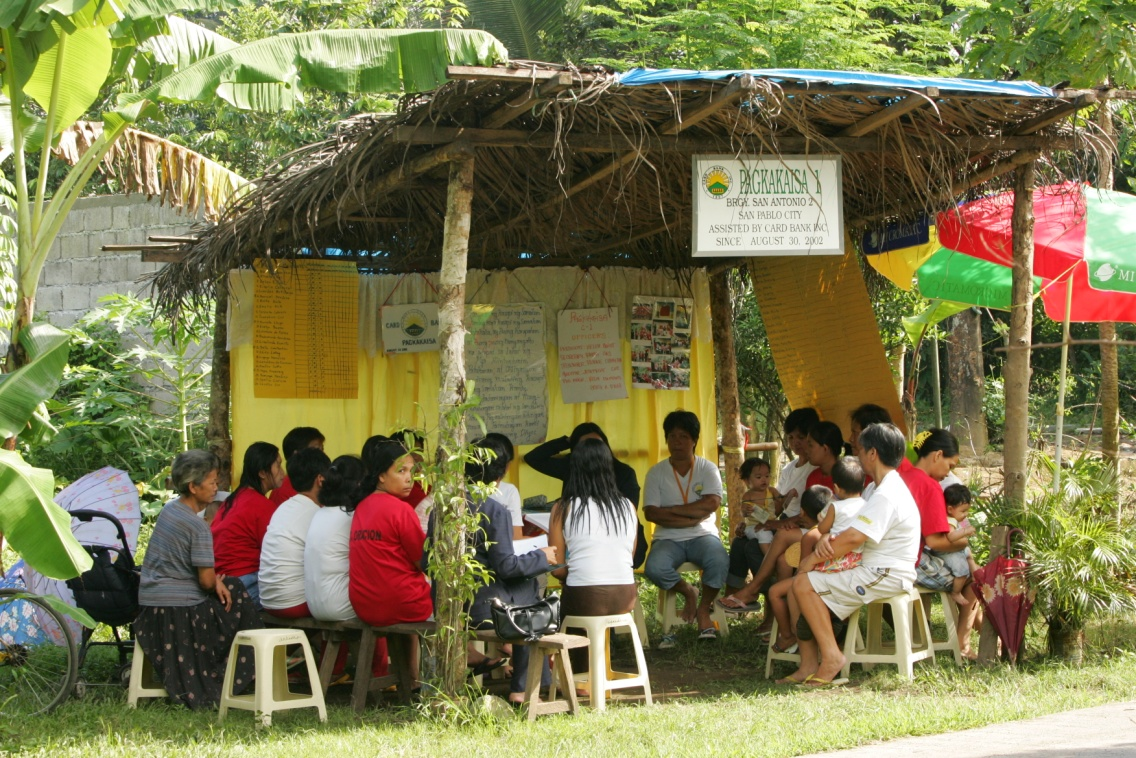
Among the many strategies to lift the world’s poor, one of the most hopeful has been microfinancing. Launched by Muhammad Yunus in 1976, the Grameen Bank provided small loans to destitute Bangladeshi women-to fund small businesses-and repudiated the conventional wisdom that the poor are not credit worthy. Today, the Grameen model is applied around the world. In the Philippines, the CENTER FOR AGRICULTURAL AND RURAL DEVELOPMENT MUTUALLY REINFORCING INSTITUTIONS, or CARD-MRI, has been a leading innovator.
Jaime Aristotle Alip, the CENTER’s founder, was introduced to microfinance as a young staff member at Philippine Business for Social Progress. In 1986, along with Dolores Torres and Lorenza Bañez and other rural development workers, he founded CARD to assist landless rural women working on the coconut plantations of Laguna Province. With a start-up fund of twenty pesos and Alip’s “magic” typewriter-for writing grant proposals-the group set to work.
In early years of trial and error, the center applied the Grameen microcredit model. Its women borrowers guaranteed each other’s loans and pledged to make loan payments and savings deposits every week. The strategy worked. By 1996, CARD had thirteen branches and seven thousand members, many of whom were now self-employed: raising chickens, goats, and pigs; operating tricycles and street-side restaurants; and working as tailors, market vendors, and mini-storekeepers.
Alip and his partners complemented the CENTER’s lending program with livelihood-skills training and, in a strategic mid-course correction, modified their model to stress individual responsibility. They also launched a microinsurance program as a safety net against emergency expenses, so often a catastrophe for the poor.
In 1997, Alip converted four of the CENTER’s microlending branches into full-service banks, or CARD Bank. In 1999, CARD’s insurance program became a separate mutual benefit association offering life and disability insurance and a retirement savings fund. In Alip’s concept, these units-the banks, the insurance operation, and the microlending branches-were “mutually reinforcing institutions,” hence CARD-MRI. In 2005, CARD’s training center became a Development Institute, yet another “reinforcing institution.”
Today, CARD-MRI’s 629 branches span the Philippines. More than half a million poor women are members and two and a half million people are insured. The center?s loan-repayment rate is above 99 percent. This has allowed CARD-MRI to wean itself from outside grants for its banking and insurance programs. Instead, it relies on profits. It now achieves a return-on-equity of 12.5 percent on assets of US$18 million. Alip is targeting a membership of one million in the near future. Meanwhile, CARD has expanded to Cambodia and beyond.
The CENTER’s newest “reinforcing institution” is its Business Development Services. Its task is to help successful microentrepreneurs expand their businesses, accrue assets, and move into the economic mainstream.
This is the aspiration of every CARD member. But, as Alip and his colleagues acknowledge, only a few have advanced to become “mature clients,” owning an income-generating business with over US$2,200 in working capital and capable of employing from five to fifteen workers. Most remain poor. Even so, their lives are better for CARD. It is one of the insights of microfinance that even small additions to a family’s income can have profound consequences-for better housing, for better nutrition, and, most of all, for better education. Over time, these small benefits accumulate, securing and improving the lives of members and offering better hopes to the next generation.
Microfinance is not a panacea for poverty. But as practiced and enhanced by CARD-MRI in the Philippines, it is a hopeful path. Through it, says Alip, the poor are gaining control “over their resources and over their own destiny.”
In electing the CENTER FOR AGRICULTURE AND RURAL DEVELOPMENT MUTUALLY REINFORCING INSTITUTIONS to receive the 2008 Ramon Magsaysay Award for Public Service, the board of trustees recognizes its successful adaptation of microfinance to the Philippines, providing self-sustaining and comprehensive financial services for half a million poor women and their families.
The Honorable Chief Justice, Chairman and Trustees of the Ramon Magsaysay Award Foundation, distinguished guests, fellow Awardees and dear friends.
Twenty-two years ago, with twenty pesos and a battered typewriter, I founded the Center for Agriculture and Rural Development together with fourteen rural development practitioners to bring the dream of sufficiency to poor landless rural folk to reality. Virtually unknown, with no track record, and armed only with its incorporators’ credibility and commitment, we envisioned to set-up a bank owned and managed by landless poor women. CARD received its first support in 1988 from the Asian Community Trust, then headed by Takayoshi Amenomori. During the initial years, we drew inspiration from Muhammad Yunus’ Grameen Bank approach to poverty alleviation. After years of hard work with fellow incorporators-notably Dolores Mangubat Torres, now CARD Bank President and Lorenza de Torres Banez, Executive Vice President-the dream for a Landless People?s Bank became a reality when CARD Bank was granted a license to operate as the country’s first microfinance-oriented rural bank in 1997. In this journey, we were joined by Flordeliza Lanip Sarmiento, Executive Director of CARD NGO; Aristeo Dequito, now CEO of Business Development Services Foundation; and Elma Buedad Valenzuela, Associate Director of CARD NGO. They were CARD’s pioneer staff, who also worked selflessly so that services will reach poor women in remote villages. Alexander Dimaculangan, General Manager of CARD Mutual Benefit Association, made sure that innovative social protection products are also made available to members.
In 2002, we adopted the ASA approach and attained unprecedented growth, thanks to the strong support of its founder, Shafiqual Haque Choudhury.
Listening to our members, we found out that loans are not enough; they need an outlet for their produce, a well-made structure they can call home, higher education for their children, small balance deposits to draw upon in times of emergencies, build assets, create wealth. Thus, with six independent institutions comprising the CARD Mutually Reinforcing Institutions or CARD-MRI, we offer members with a broad range of financial and non-financial products and services.
The Nanays are at the center of our mission; they define our very own existence. We believe that increasing their access to financial and nonfinancial services will lead to economic empowerment. But more than access to resources, we maintain that control over these resources is even more empowering, leading to increased well being for themselves and their families, and to wider social and political empowerment. Translating this belief into action, many of our Nanays are now stockholders of CARD Bank. The Mutual Benefit Association, presently providing insurance coverage to more than two and a half million low-income Filipinos, is fully owned by our Nanays. Of CARD MRI’s 3,600 employees, one third are sons and daughters of our Nanays, who evidently have severed the bondage of intergenerational illiteracy. We will ensure that the management of CARD-MRI is passed on to their hands, and that their generations witness the end of poverty for their families.
May I request the CARD-MRI delegation to stand to be recognized.
It is with great honor that I accept the Ramon Magsaysay Award on behalf of the CARD-MRI’s boards, whose expertise enriched us; the management and staff and their families, whose sacrifices sustained us; our partners, whose trust buoyed us; and finally, my late father, Jose de Castro Alip, who believed that a son’s dream can come true.

